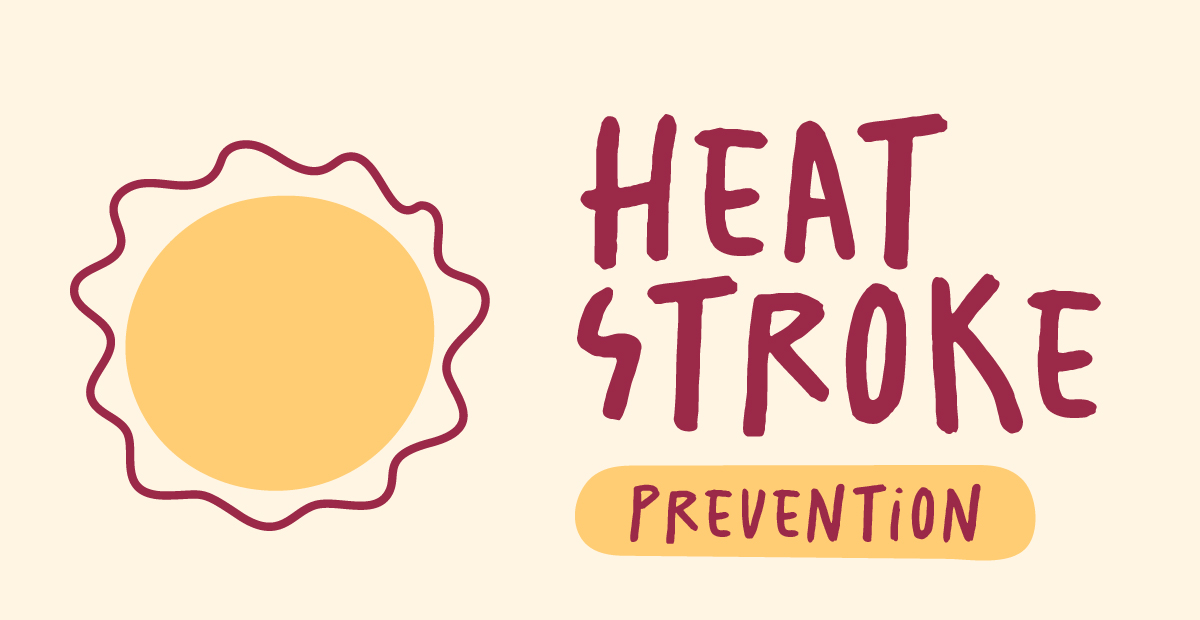9 Tips for Preventing Heat Stroke
Posted in Accident & Injury, Community Outreach, Health & Wellness on June 17, 2024

Heat is one of the leading causes of weather-related deaths in the United States. According to the Centers for Disease Control and Prevention (CDC), approximately 1,220 people are killed by extreme heat each year. Emergency room visits for heat-related conditions such as heat stroke and dehydration spike significantly during heatwaves. By following these tips, you can help ensure that you and your loved ones remain safe and healthy during the heatwave.
Stay Cool Indoors
One of the best ways to avoid heat stroke is to spend time in air-conditioned spaces whenever you can. If your home doesn’t have air conditioning, consider going to places like malls or libraries. Just a few hours in a cooler environment can help your body stay safer when you go back outside in the heat. You can also contact local 2-1-1 for assistance and referrals to cooling centers or your local news source.
Wear Appropriate Clothing
Remember to wear loose and light-colored clothes to stay cool and reflect the sun better. Also, wear a wide-brimmed hat, sunglasses, and sunscreen with SPF 30 or more. Reapply sunscreen every two hours, especially if you’re sweating or swimming.
Stay Hydrated
Make sure to drink plenty of water throughout the day, even if you don’t feel thirsty. When it’s hot outside, you can get dehydrated quickly without even realizing it. Try to avoid drinks that have a lot of sugar or alcohol because they can dehydrate you faster. When you sweat a lot, you lose salt and minerals from your body, so think about drinking sports drinks to put those back. And if you have any health issues or special diets, it’s best to talk to your doctor first.
Take Cool Showers or Baths
Taking cool showers or baths can help lower your body temperature. You can also use a damp cloth to wipe down your body or place a wet towel on your neck to stay cool.
Use Appliances Less to Keep Your Home Cooler
Use your stove and oven less to maintain a cooler temperature in your home. Cooking with these appliances can add unnecessary heat to your living environment.
Do Not Leave Children or Pets in Cars
Remember, never leave babies, kids, or pets in a parked car, even with the windows slightly open. Cars can get hot fast, and this can be dangerous for them and can cause heat stroke or even death. Always make sure to check the car before walking away to be sure nobody is left inside.
Be Smart About Outdoor Activities
Try to do your outdoor activities during the cooler parts of the day, like early morning or evening. Take breaks in shady spots to give your body a chance to rest. Don’t push yourself too hard in the heat; if you’re not used to it, start with less intense activities and gradually increase your pace.
Stay Connected with A Buddy
When it’s hot outside, people can get confused or pass out. If you’re working in the heat, keep an eye on your co-workers and ask them to do the same for you. If you’re 65 or older, have a friend or family member call to check on you twice a day during a heat wave. If you know someone in this age group, check on them at least twice a day.
Keep Pets Hydrated
Don’t forget to make sure your pets have access to lots of fresh water, especially in a shady spot. Just like people, pets can get too hot and need to stay cool and drink plenty of water to avoid heat stroke.
Recognize the Signs of Heat Stroke
- High body temperature: A core body temperature of 104°F (40°C) or higher.
- Altered mental state or behavior: This can include confusion, agitation, slurred speech, irritability, delirium, seizures, and coma.
- Nausea and vomiting: Feeling sick to your stomach or vomiting.
- Flushed skin: Skin may turn red as body temperature increases.
- Rapid breathing: Breathing may become shallow and rapid.
- Racing heart rate: A significantly increased pulse due to the heat stress on your body.
- Headache: A throbbing headache is common.
If you or someone you know shows these symptoms, seek medical attention immediately.